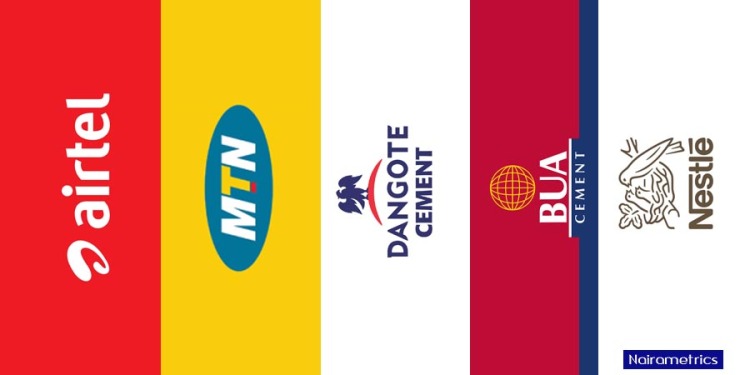Biodun Ogunleye served the guests seated at an event with the enthusiasm of a people pleaser. Typically, he scans the hall looking for people he perceives as generous or well-to-do by focusing on their appearance and disposition.
He waits dotingly on the tables of the people that might be able to help, even going as far as introducing himself on a first name basis to establish a personal connection. “My name is Biodun, sir/ma, if you need anything.” This makes guests feel special because why signal a random waiter when you know one’s first name and he knows where your table is?
As the event draws to a close, he goes over with final drinks, something to lighten up their mood and inadvertently loosen their pockets so they can grease his palm.
- Tipping: This may be described as an act of giving a small gratuity to, especially an employee of someone who provides a service.
Biodun is one of the people that make up the larger part of the percentage of the Nigerian labour force – the blue and pink-collar workers. He rises at 5 in the morning to meet up with a catering gig at 9 and he makes anywhere from N10,000 to N50,000 a month with the salary earned from these jobs. This is hardly enough to meet his needs, especially now that he has to pay tuition having recently gotten admission into the Federal Polytechnic in Yaba, Lagos State.
The amount may have been fine a decade ago when the Naira was stronger and businesses were not weighed down by a pandemic, insecurity, and others. Today, that amount is barely enough, now that the cost of living has almost tripled in a short time; Biodun thus relies on tips and handouts to augment his scant salary.
Insight into tipping
The tipping etiquette in Nigeria is not as complicated as in other countries but it is something noteworthy. A tip can determine the type of service you get, even from law enforcement that is there to serve and protect. While other countries, like the United States, has a gratuity rule surrounding restaurant culture, Nigeria’s tipping culture is spread out across every industry. In some cases, it comes before the service is even rendered.
Michael Oluwatobiloba, much like Biodun, works as a server at events but he said he has come to not expect tips from them because of the nature of events he works at – award shows and product launches. “As nice as tips can be, I believe there is only so much one can do to earn them while being dignified,” he said.
Everywhere you go in Nigeria, someone will greet you fondly and linger with a slight hopeful air. They will ask about your family, the state of work, and even your weekend. Security guards opening doors, waiters plastering a wide smile on their faces, and gatemen greeting in an exaggerated way are all examples of it.
John Iginla, a security guard at a branch of a popular Nigerian bank says he tries to wipe the windshield of any approachable customer because it shows thoughtfulness. He says, “Tips sometimes covers my lunch, letting me save most of my salary for rent and for my family’s upkeep.”
All this ‘eye service’, as these gestures have come to be known in Nigeria, is just to be able to pocket an extra buck mostly because of the hard times. Nigeria’s inflation rate went from 13.25% in 2020, to 16.95% in 2021, and 18.60% in June 2022, according to the National Bureau of Statistics (NBS). According to numbeo.com, Nigerians spend about 7.9% of their monthly expenses on transportation alone. For people who go to work every day, their transportation fees could range anywhere from N1,000 to N3,000 depending on the distance, transportation mode and weather conditions. For instance, bus drivers and conductors in Lagos are known to charge more when there is heavy rainfall. Heavy rainfall usually means there will be fewer operational buses and more people in need of a ride. The same goes with ride-hailing apps like Uber, and Bolt; fewer available cars equal to a surge in pricing.
Ijeoma Chiemezie, a hairdresser, who often works part-time as a hospitality personnel says the job is much harder than it may seem to an onlooker.
She said, “You have to get there very early and usher people to their seats. Standing for most of the program or event in stilettos and wearing a smile. If that smile makes someone offer me something small, I won’t turn it down. It can really help when you are down to your last card.”
Even though she wouldn’t mind tips, she also says she has to turn them down because some organizers highly discourage it, and it would be awkward to ask whoever is offering to hide it or meet her in a secluded area like a clandestine deal.
The line between begging and accepting tips
Workers who hint at wanting tips may sometimes be taken for corporate beggars – which is another thing entirely. Corporate beggars are well-dressed people who start out by introducing themselves and sharing a hard-luck story before asking for alms.
Workers who want and accept tips will usually smile, wave, greet, linger, and even hail.
Like many of the economic issues Nigeria faces, the solution to this issue lies with the federal government. Better living conditions and livable wages would curb the need for a tip or even the temptation to emigrate as many have done in search of greener pastures.
























Describing what one often encounters in Lagos as “tipping” is the most generous and liberal interpretation of the term. No sir, what typically happens in Lagos ranges from HARASSMENT to EXTORTION!